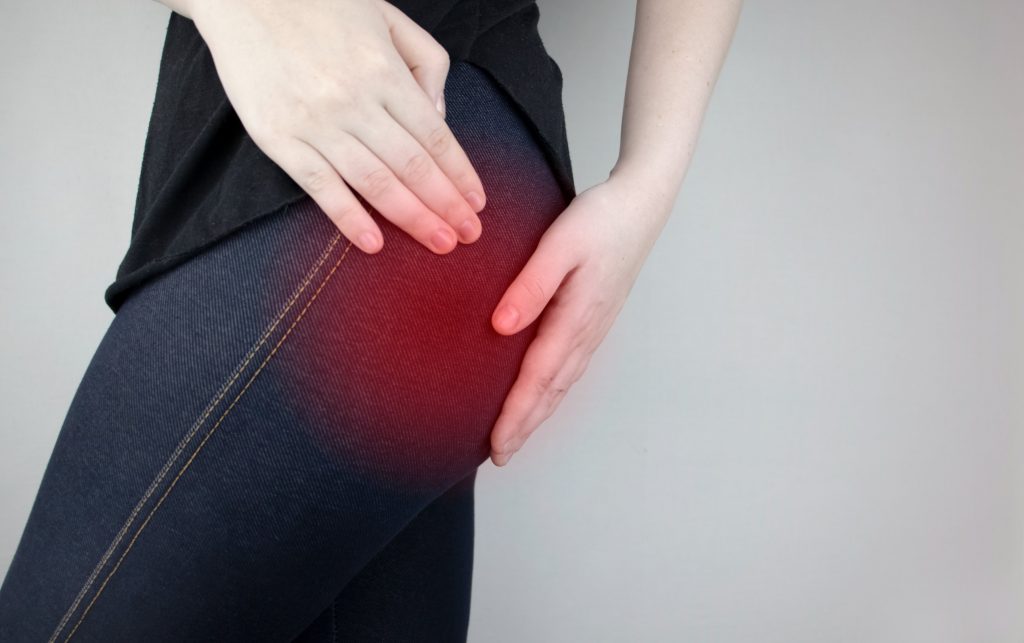Scared To Visit An Orthopedic Specialist: Muscle Pain Might Not Be What You Think
What Is Piriformis syndrome?
One of the most common causes of hip or muscle pain in the buttocks is Piriformis syndrome. An Orthopedic Specialist would characterize Piriformis syndrome as a pain caused when the piriformis muscle is contracted or damaged and also when it impinges or compresses the sciatic nerve.
The pain that happens when the sciatic nerve is compressed is called “sciatica”. Pain may be felt in the affected buttock, thigh and leg because the pain travels within the distribution of the sciatic nerve. The sciatic nerve branches out from the lumbar (low back) spine and passes through the piriformis muscle.
The piriformis muscle runs from the sacrum to the greater trochanter, which is the outer part of your upper femur (thigh). The sciatic nerve runs either through or under the piriformis muscle as it leaves the spine.
Piriformis syndrome affects many different people such as athletes, patients who have undergone surgery in or near the area of the piriformis muscle. Sometimes the cause is not known. Piriformis syndrome involves gluteal pain often accompanied by pain radiating down the affected leg in the distribution of the sciatic. It is commonly called “hip pocket neuropathy” or “wallet neuritis”. The location of the sciatic nerve in relationship to the muscle makes it vulnerable to irritation and entrapment secondarily to pathology involving the piriformis muscle.

How would an Orthopedic Specialist Diagnose Piriformis syndrome
Piriformis syndrome is mostly a diagnosis of exclusion with the symptoms of sciatica and pain in the buttock. There have been studies of diagnostic tests which may aid in identifying piriformis syndrome.
One of the most common causes is a history of trauma to the buttocks. About 92% of patients seeing an Orthopedic specialist for Piriformis syndrome report either direct or indirect trauma. Direct trauma may be to the low back or buttocks. Indirect trauma may be due to unusual stretching of the lumbosacral and/or hip muscles through athletic or other strenuous activities.
Other Symptoms

Women often complain of pain with sexual intercourse, dyspareunia; men may complain of rectal pain. There is pain with walking, limping, and squatting. There is often pain with stooping or lifting, intolerance to sitting, taking long automobile rides, and complaints of pain in the buttock.
The treatment for the sciatic pain may not yield results. History of failed laminectomy, discetomy, and chemonucleolysis, or a series of epidural steroid injections with no change in sciatica may indicate piriformis syndrome.
There are five classic symptoms that an Orthopedic Specialist is looking for…
- A history of trauma to the sacroiliac and gluteal regions
- Pain in the region of the sacroiliac joint, greater sciatic notch, and piriformis muscle that usually extends down the limb and causes difficulty with walking
- Acute exacerbation of pain caused by stooping or lifting
- A palpable sausage-shaped mass, tender to palpation, over the piriformis muscle
- Gluteal atrophy
If you have these symptoms it is important to go see your Orthopedic Specialist. Most cases of piriformis syndrome may be treated without surgery, so call today.





